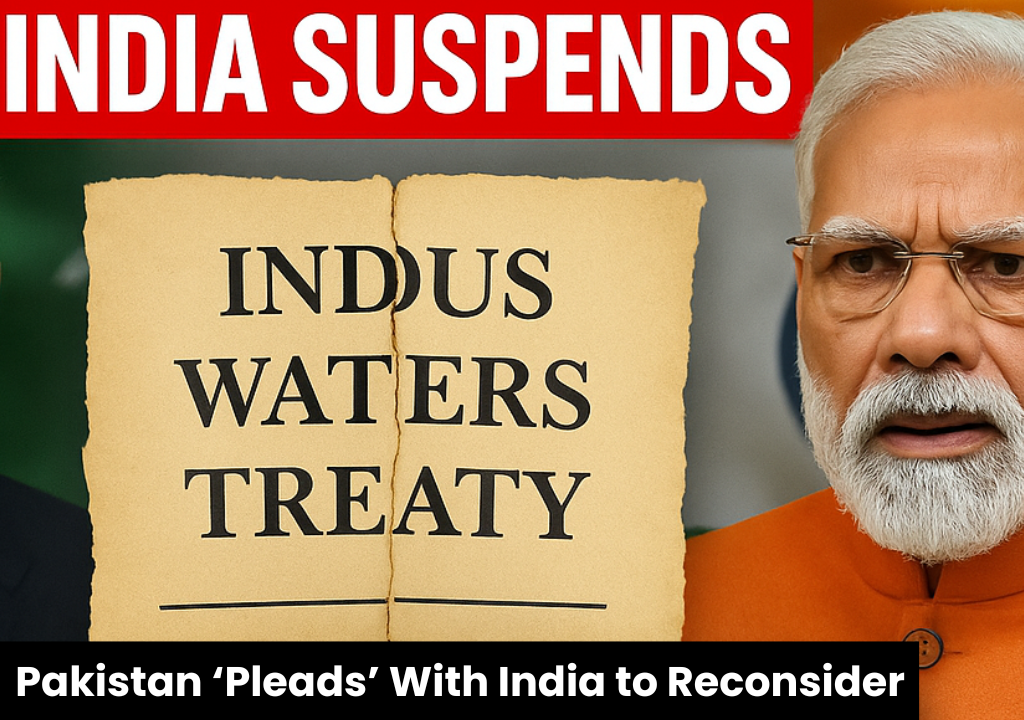Tensions between India and Pakistan have deepened further following India’s unprecedented Indus Waters Treaty suspension, marking the first time New Delhi has halted the 1960 water-sharing agreement. This decision, taken in the aftermath of the Pahalgam terror attack on April 22 that killed 26 civilians, has led to Islamabad’s Ministry of Water Resources formally appealing to New Delhi to reconsider the suspension and resume the flow of western rivers into Pakistani territory.
India, however, has made it clear that national security will now define its diplomatic and water-sharing posture. With this, a foundational pillar of India-Pakistan engagement has come under strain like never before.
Pakistan’s Formal Plea Amid Looming Water Crisis
According to sources, Pakistan’s Ministry of Water Resources has written a letter to India’s Ministry of External Affairs, warning that the Indus Waters Treaty suspension could trigger a severe water crisis in Pakistan, especially in Punjab and Sindh provinces that rely heavily on Indus, Jhelum, and Chenab rivers.
The letter urges New Delhi to resume the flow of water and uphold the principles of the World Bank-brokered treaty signed in 1960.
However, Indian officials have dismissed the plea, citing Pakistan’s continued patronage of terrorism and its failure to curb groups operating from its soil.
Why Did India Suspend the Indus Waters Treaty?
The Indus Waters Treaty, signed between India and Pakistan in 1960, allocates:
- Western rivers (Indus, Jhelum, Chenab): to Pakistan
- Eastern rivers (Sutlej, Beas, Ravi): to India
India receives about 30% of the total river system flow, while Pakistan benefits from 70%, despite the rivers originating from Indian territory.
India invoked a national security clause after the Pahalgam attack, claiming:
“Water and blood cannot flow together,” Prime Minister Narendra Modi said in his first address after Operation Sindoor.
India accused Pakistan of state-sponsored terrorism and stated that talks, trade, and treaties cannot coexist with terror.
🔗 Also Read: Indian Fighter Jets Bomb Pakistan Air Bases »
India’s Three-Tier Water Strategy
Following the Indus Waters Treaty suspension, the Cabinet Committee on Security (CCS) approved a three-tier water management strategy to retain all possible water within Indian borders:
1. Short-Term Measures
- Stopping surplus flow through unutilized channels
- Enhancing storage capacity in existing dams
- Better canal and irrigation management
2. Mid-Term Goals
- Accelerating the construction of stalled hydroelectric projects
- Improving inter-basin water transfer systems
- Installing advanced water-monitoring infrastructure
3. Long-Term Vision
- Developing new multi-purpose dam projects
- Expanding groundwater recharge initiatives
- Collaborating with state governments for water budgeting
Union Jal Shakti Minister C.R. Paatil stated:
“Not a single drop of water will flow to Pakistan unutilized. We are reclaiming our rightful share.”
📌 Related Reading: UNSC Grills Pakistan Over Pahalgam Attack, Demands Accountability
Foreign Ministry’s Firm Stand
Foreign Ministry Spokesperson Randhir Jaiswal issued a statement, saying:
“The Indus Waters Treaty was built on goodwill and friendship. Pakistan has eroded both by aiding and abetting terrorism.”
He reiterated that dialogue is not possible under duress, and water diplomacy cannot be isolated from national security considerations.
Pakistan’s Domestic Concerns Escalate
In Islamabad, political and environmental experts have raised alarm over the implications of the Indus Waters Treaty suspension, fearing:
- Reduced irrigation potential
- Increased drought risk in Sindh and Balochistan
- Energy shortages due to lack of hydroelectric generation
Pakistan’s Indus River System Authority (IRSA) is reportedly preparing contingency plans, while diplomatic efforts to engage with the World Bank and United Nations are underway.
Conclusion
The Indus Waters Treaty suspension is a watershed moment in India-Pakistan relations. With terror attacks eroding mutual trust, India has recalibrated its diplomacy to reflect strategic deterrence rather than goodwill.
Pakistan’s plea to resume the treaty reflects the urgency of its internal water crisis, but India’s firm stand suggests that future cooperation will depend entirely on Islamabad’s actions against terrorism.
Until then, water will now be seen as a tool of statecraft, not just a matter of cooperation.

